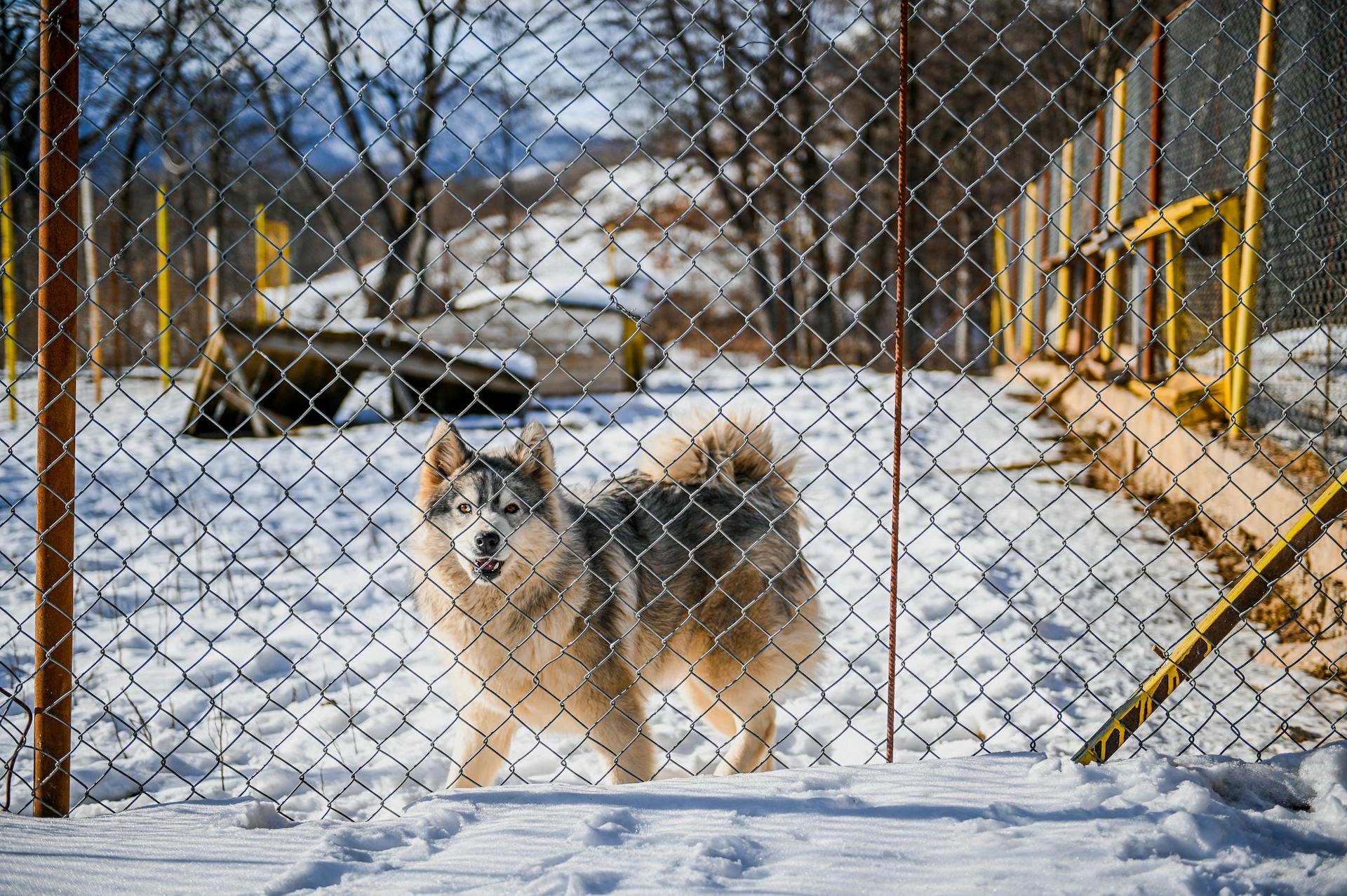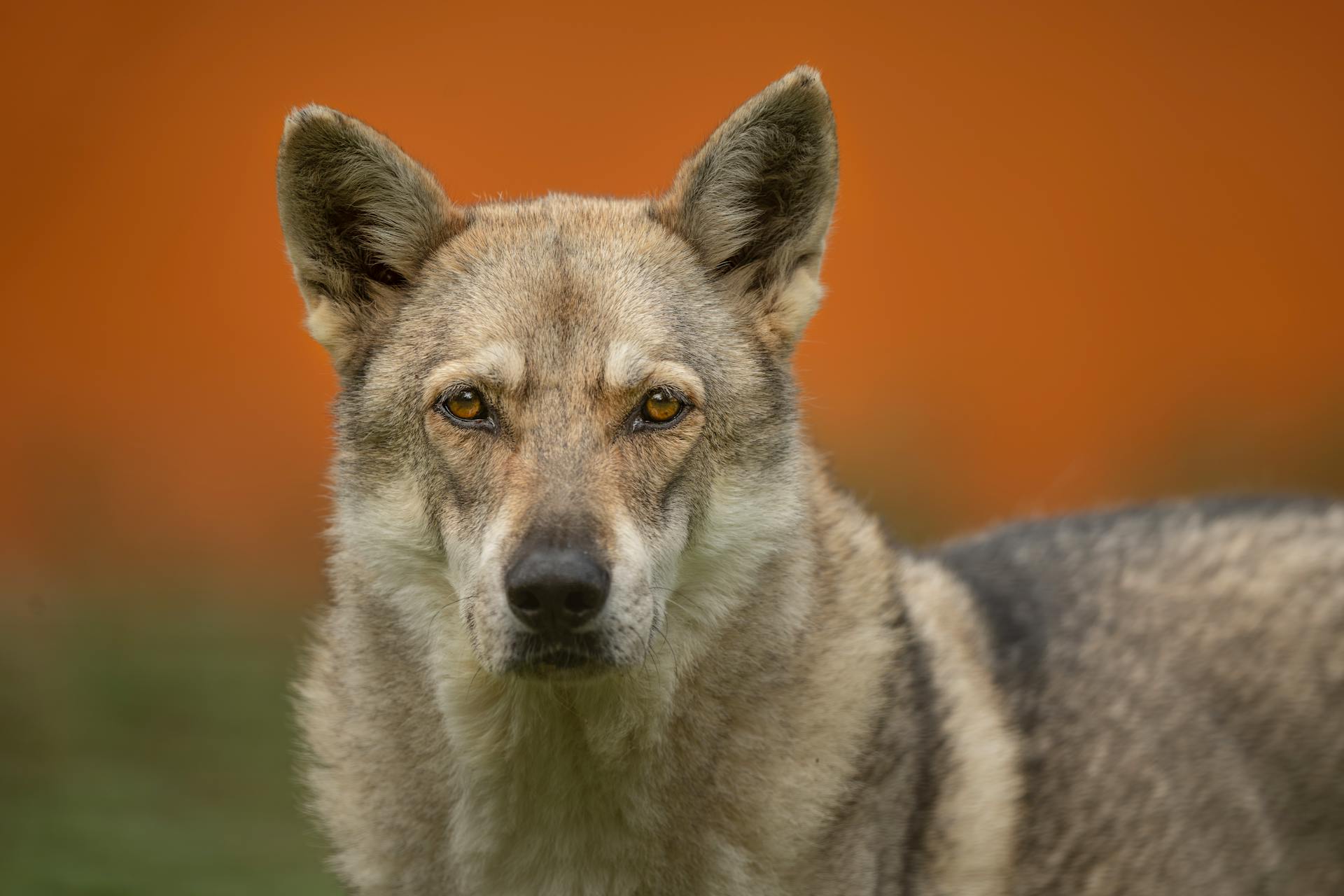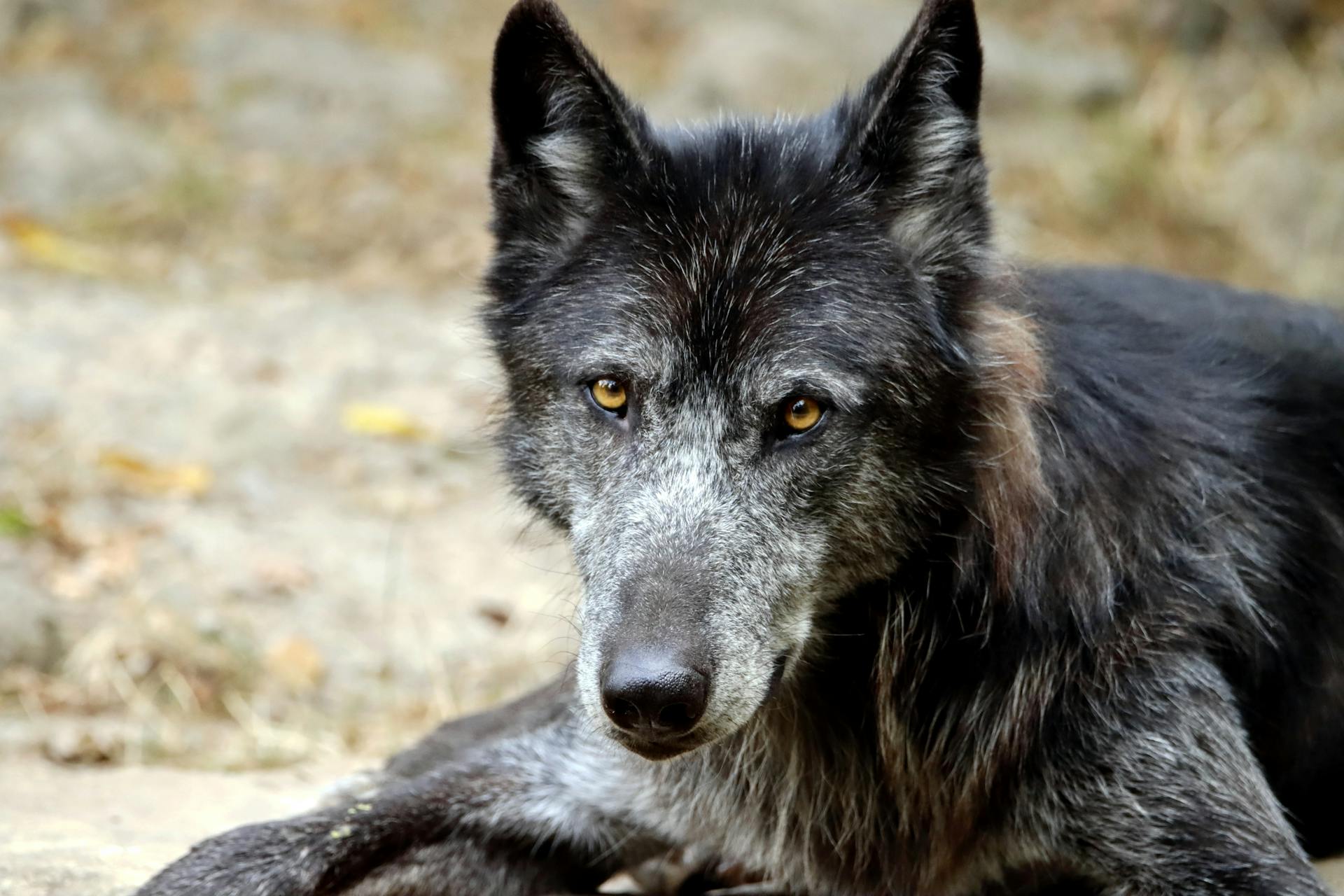
In the United States, the legality of wolfdogs varies from state to state, with some states allowing ownership and others prohibiting it. Laws regarding wolfdogs are often complex and nuanced.
Some states, like California, have specific regulations governing the ownership of wolfdogs, requiring owners to obtain a permit and meet certain standards. In contrast, states like Montana and Wyoming have more lenient laws, allowing private ownership of wolfdogs without restrictions.
Wolfdog owners must also consider local ordinances and homeowners association rules, as some communities may have specific regulations or restrictions on keeping wolfdogs as pets.
A unique perspective: Are Wolfdogs Legal in Florida
What Is a Wolfdog?
A wolfdog is an animal that's part wolf and part dog, sharing a common evolutionary past that makes them physically and behaviorally similar.
Wolfdogs aren't a specific breed, but rather a term used to describe their wolf-to-dog genetic ratio, often referred to as "content."
A low-content wolf-dog hybrid will display more dog traits than wolf traits, both physically and behaviorally.
Wolfdogs are almost exclusively the result of human intervention in dog-wolf interactions, and experts suggest they're extremely rare in nature due to wolves being territorial and monogamous animals.
In fact, wolves usually won't react well to dogs being near them or their territory.
Check this out: How Long before a Dog Is Legally Yours?
Owning a Wolfdog: Laws and Regulations
The U.S. government leaves it up to individual states to regulate wolf dogs, which can make things complicated.
There are no consistent nationwide laws governing wolf dogs, so you'll need to check with your state's regulatory agencies.
You'll have to check your local laws to see if owning or buying a wolf-dog hybrid is legal where you live.
Most jurisdictions will ask you to acquire special permits to keep a wolfdog, even if it's legal.
Certain permits and enclosure requirements may be necessary to keep a wolf dog as a pet, so it's essential to do your research.
It's best to check with your state's various regulatory agencies before looking into buying a wolf dog.
You might like: Is It Legal to Bring Your Dog to Work
Owning a Wolfdog
Owning a wolfdog can be a unique experience, but it's crucial to consider the potential risks. These animals are fiercely protective of their owners, which can be a wonderful trait, but also poses a danger to others.
Wolfdogs tend to bond strongly with their owners, but their natural behaviors can be challenging to train out of them. This is because they don't have the same eagerness to please as domesticated dogs.
A wolfdog's aggression can be triggered by negative training methods, so it's essential to use positive reinforcement techniques. Unfortunately, natural behaviors are practically impossible to train out of a wolfdog.
If you do plan to get a wolfdog, research thoroughly before settling on a breeder. You need to know for certain that your puppy is at most 25 percent wolf.
A good breeder should work on socializing the puppies from day one and ensure they only go to capable owners. This is crucial for the puppy's well-being and your safety.
Expand your knowledge: Wolfdog Puppy
Species Overview
Wolfdogs are a fascinating topic, and it's essential to understand their species overview before diving into the legality of owning one. The scientific name for a wolfdog is not an official term, but it's often interbred with one of the following wild species: Canis lupus, Canis lycaon, Canis rufus, or Canis simensis.
On average, an adult wolfdog can grow to be around 25 to 33 inches in height. Their weight can vary greatly, ranging from 60 to 120 pounds.
Wolfdogs have a relatively long lifespan, typically living between 13 to 16 years.
See what others are reading: Are Wolf Hybrids Legal in California
Ethics and Considerations
Owning a wolf dog is a subject full of contention, with some people believing they're similar enough to domestic dogs to be owned the same way.
The debate centers around the wolf dog's wild genetics, which can make them more feral than tame. This raises concerns about the safety of both the animal and people who interact with it.
Some argue that wolf dogs can be domesticated and make great pets, while others believe their instincts will always prevail, leading to unpredictable behavior.
You might enjoy: Dog Carry
Frequently Asked Questions
How aggressive are wolf hybrids?
Wolf hybrids are more likely to be aggressive, with a significant percentage prone to attacking others, making them a potentially hazardous pet choice. Research suggests that training and acclimation may not be enough to overcome their natural instincts.
Sources
Featured Images: pexels.com


